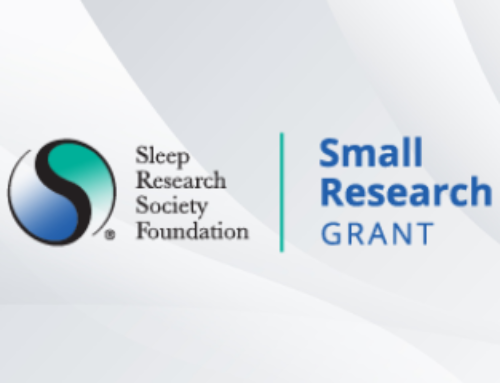The American Academy of Sleep Medicine Foundation is pleased to announce the four recipients of the 2025 AMA Foundation Physicians of Tomorrow scholarships that were funded by our multi-year investment in the AMA Foundation.
The following individuals have demonstrated a significant passion for sleep medicine, and we are excited to see what the future holds as they continue their training.
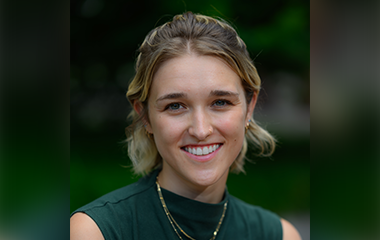 Elizabeth (“Lilly”) Montesano Scheibe
Elizabeth (“Lilly”) Montesano Scheibe
Harvard Medical School
Elizabeth (“Lilly”) Montesano Scheibe is a medical student at Harvard Medical School (Class of 2026) pursuing child neurology with a specialization in sleep medicine. She graduated summa cum laude from Yale University in 2019. Currently completing a research year with Dr. Kiran Maski at Boston Children’s Hospital, Lilly focuses on pediatric central nervous system hypersomnias, particularly narcolepsy type 1 (NT1). Her first-author work investigates cardiovascular risks in NT1 treatment and vigilant attention in pediatric NT1, with multiple SLEEP conference presentations and publications. Lilly is also conducting co-first author research with Drs. Thomas Scammell and Maggie Blattner at BIDMC exploring pregnancy and narcolepsy—a critical knowledge gap. This mixed-methods study combining surveys and interviews addresses the lack of information on medication safety that often disempowers women with narcolepsy and will be presented at SLEEP 2025. Her interest in sleep medicine was catalyzed by her own NT1 diagnosis during medical school, providing unique insight into patient needs. As co-president of HMS Student Alliance in Chronic Illness, Health Conditions, and Disabilities and recipient of Harvard’s Equity, Social Justice, and Advocacy Award, Lilly advocates that increasing disability representation in medicine cultivates more compassionate doctors.
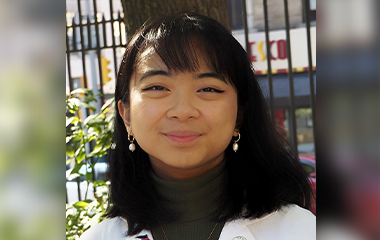 NatalieDeana Badillo
NatalieDeana Badillo
Weill Cornell Medicine
NatalieDeana Badillo is a medical student at Weill Cornell Medicine and a Clinical and Translational Science Award TL1 Pre-Doctoral Trainee. She graduated summa cum laude in Biomedical Engineering from Macaulay Honors College at The City College of New York and is currently pursuing her MD degree alongside an Advanced Certificate in Clinical and Translational Investigation, with expected completion in 2026. Her research focuses on leveraging technology for accessible medicine, now developing machine learning models for sleep disorder diagnosis using polysomnography data. Through Weill Cornell’s BioVenture eLab, she guest lectures on human-centered design principles for healthcare innovation and 3D prototyping techniques. Her scholarly work has been published in JAMA Otolaryngology-Head & Neck Surgery and Annals of Surgical Oncology. Natalie’s academic pursuits are complemented by her cultural community engagement, including founding the NYC Filipinx Community Health Fair, serving as Community Engagement Chairperson for the Council of Young Filipino Americans in Medicine (CYFAM), and leading as Publicity Chair for the Association of Filipino Scientists in America (AFSA). As a member of Tau Beta Pi and Biomedical Engineering Society (BMES), she exemplifies how interdisciplinary thinking at the intersection of engineering, medicine, and community engagement addresses complex healthcare challenges.
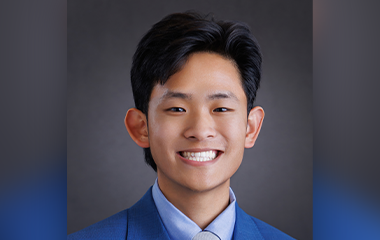 Si Hao Tang
Si Hao Tang
Drexel University College of Medicine
As a future physician-scientist, Si Hao Tang is excited to continue exploring the science of sleep — both at the biomolecular level and in clinical contexts. Sleep affects nearly every aspect of human health, yet much remains unknown. He also want to continue to explore how sleep disorders disproportionately affect underserved communities. Factors like race, socioeconomic status, language barriers, and access to care all shape who receives a diagnosis, who gets treatment, and whose symptoms are overlooked. He hopes to contribute to research that not only advances our understanding of sleep physiology but also sheds light on these disparities.
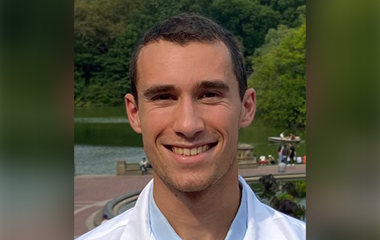 Walter Jacob
Walter Jacob
Icahn School of Medicine
Walter Jacob is a rising fourth-year medical student at the Icahn School of Medicine. He has decided to pursue a career as a sleep medicine physician-scientist, with the ultimate goal of working at a major academic center where he can combine clinical practice with translational research. He will be applying to research track neurology residency positions, with the aim of completing a sleep medicine fellowship afterward. For him, sleep medicine represents an exciting frontier at the intersection of neurology, cardiology, and general health. He believes sleep is far more than a passive state and that optimizing sleep could have far-reaching benefits for preventing and managing a wide range of chronic diseases.




